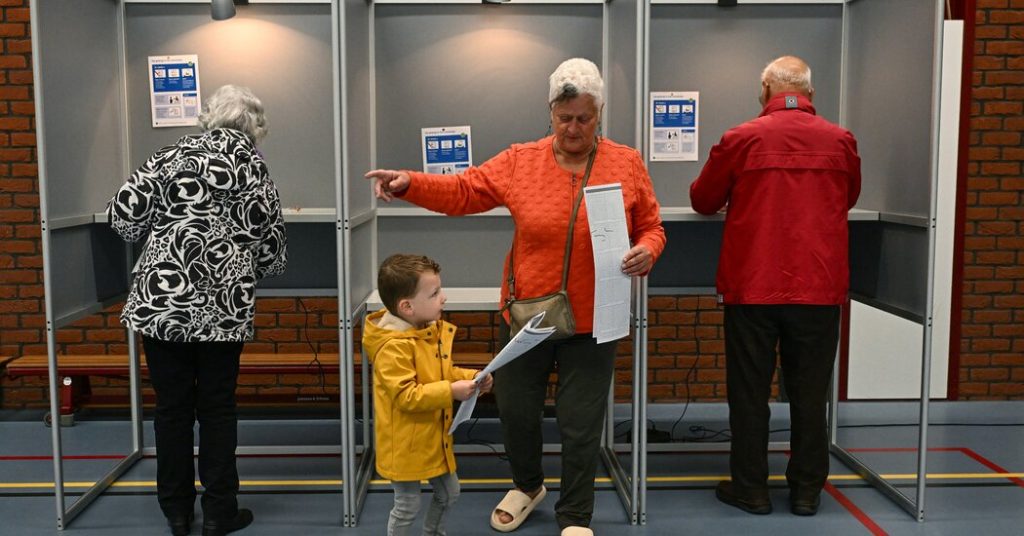The European Parliament elections are often viewed as unimportant, despite the fact that hundreds of millions of voters across 27 nations will be casting their ballots. The European Parliament is considered the least powerful of the European Union institutions, with limited powers and a mix of members ranging from ascendant stars to retired politicians or even criminals. However, the European Union has become increasingly important in delivering tangible benefits to its citizens and the world as a whole. The Parliament emerging from these elections will play a crucial role in shaping Europe’s immediate future by either accelerating or slowing crucial policies.
Over the past five years, the European Union has made significant decisions such as joint Covid-19 vaccine purchases, economic stimulus programs, sanctions against Russia, and overhauls of migration and climate policies. Despite these accomplishments, the EU has faced criticism for lacking accountability, transparency, and favoring urban elites over rural voters. The loss of sovereignty to Brussels, governed by technocrats, is a concern for many Europeans. The upcoming elections may see a swing to the right, driven by discontent over Covid-era policies, increased migration, and a desire to regain control and identity.
The election results are expected to produce a new compromise between political extremes, with centrist parties potentially having to work with the far right to achieve legislative goals. If projections hold true, the Parliament may face challenges in performing its limited functions such as approving EU legislation, the bloc’s budget, and top leadership positions. Smaller disruptive actors may gain more power, leading to further instability in European politics. The rise of the far right could result in a more fragmented political landscape, with implications for European governance and decision-making.
The European Union thrives on crisis and the current model of super-national governance is based on the idea that European countries can achieve more together than individually. However, tensions exist between the EU institutions in Brussels and national governments in member states. The pandemic highlighted this tension, with the EU facing backlash due to vaccine procurement issues and the joint borrowing plan for economic recovery. The crisis in Ukraine also tested the EU’s stance on foreign policy, with significant implications for the bloc’s relations with Russia.
The upcoming elections will send a clear signal to European leaders about the level of support for further integration and the balance of power between Brussels and national governments. Nationalist and nativist parties are pushing back against the perceived loss of sovereignty to the EU, creating challenges for addressing key issues such as competitiveness, migration, and security. The EU’s political mainstream is attempting to proactively address these challenges, but faces difficulties in achieving consensus on critical issues. A stronger far-right presence in the European Parliament could impact the EU’s ability to maintain its stance on international relations and navigate a fragmented global order.
With the potential for a Trump-aligned US administration, the EU faces additional challenges on the global stage in terms of foreign policy and maintaining unity. A Trump presidency could lead to changes in American investment in NATO, peace negotiations in Ukraine, and support for Israel. The EU’s ability to assert itself as a global player may be tested, particularly with the rise of nationalist parties in member states. The EU must be prepared to respond to drastic changes on the world stage, while also addressing internal challenges related to political alignment and decision-making.


